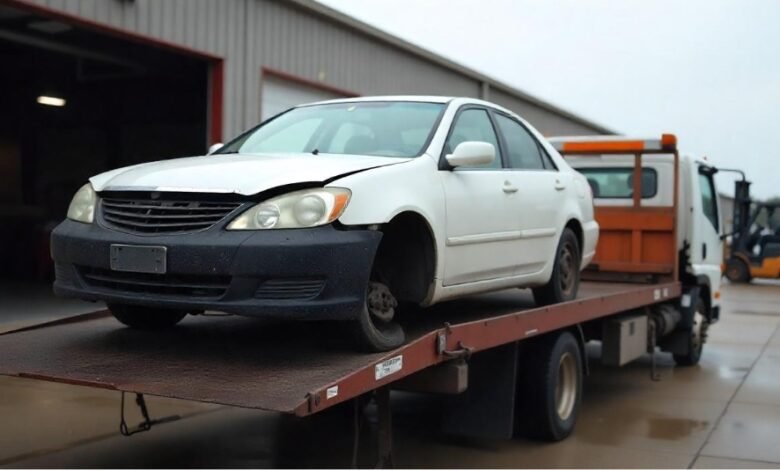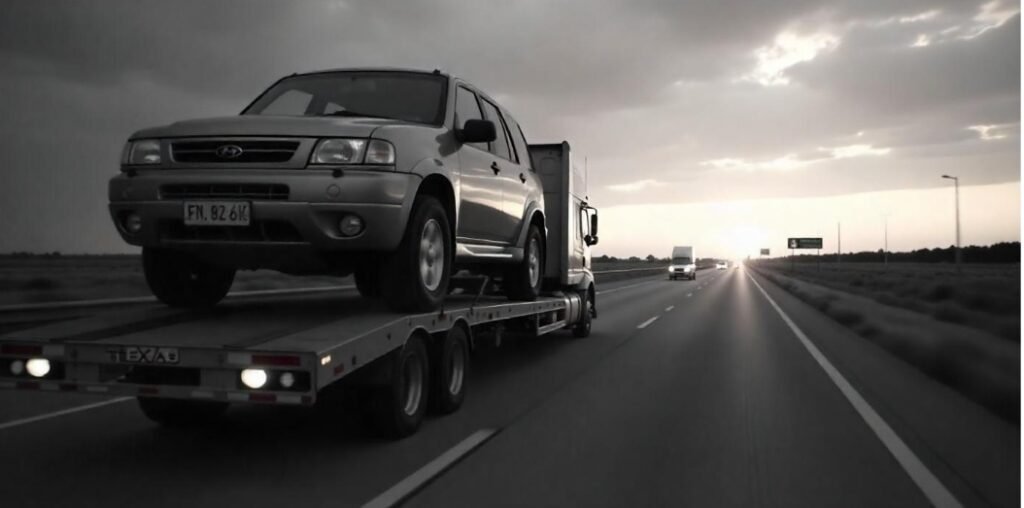How to Ship a Non-Running Car from Kansas to Florida

Transporting a non-running car across state lines can feel like a daunting task—especially if you’re navigating a Kansas to Florida car shipping route. Whether it’s a project car, a vehicle damaged in an accident, or one with mechanical issues, shipping a non-operational car isn’t impossible—it just requires the right knowledge and a professional touch.
Key Highlights
- Specialized Equipment Required: Non-running cars need winch-equipped carriers or forklifts for safe loading and transport across long distances like the Kansas to Florida route.
- Extra Costs Apply: Expect to pay $150–$300 more than standard shipping rates due to the vehicle’s inoperable status and additional handling requirements.
- Smooth Process with the Right Provider: Partnering with a professional auto transporter experienced in Kansas to Florida car shipping ensures safe delivery—even if your vehicle doesn’t roll, steer, or brake.
In this guide, we’ll walk you through how to ship a non-running car from Kansas to Florida, including what to expect, how to prepare, and how to ensure a smooth, stress-free process.
Can You Ship a Non-Running Car?
Yes, you absolutely can—but it’s not the same as shipping a fully functional vehicle. Carriers need to use specialized equipment, such as winches, flatbeds, or forklifts, to safely load and unload non-operational vehicles.
Before shipping, you’ll want to determine the condition of the vehicle:
- Can it roll?
- Does it steer?
- Can it brake?
If the answer to all three is yes, it’s considered a “rolling” vehicle and is much easier (and cheaper) to ship. If it can’t roll, brake, or steer, you’ll need additional services, which may affect both pricing and delivery times.
Step-by-Step: How to Ship a Non-Running Car from Kansas to Florida

1. Get the Car Inspected
Start by assessing the condition of the car. If it doesn’t start but still rolls, steers, and brakes, most carriers can handle it with a winch-equipped trailer. If it’s completely immobile, you’ll likely need a forklift or flatbed towing for loading.
2. Find a Specialized Auto Transport Company
Not all auto shippers are equipped to handle inoperable vehicles. Look for a company that offers:
- Winch-enabled trailers
- Forklift or crane access if needed
- Experience with non-drivable or salvage cars
Choose a provider that specializes in Kansas to Florida car shipping, especially one with experience handling long-distance routes for non-operational vehicles.
3. Request a Quote
Shipping a car from Kansas to Florida typically ranges from $900 to $1,300, depending on the vehicle’s condition, pickup/drop-off location, and seasonality. If the car is non-running, expect to pay an additional $150 to $300 to cover the extra handling and equipment.
Make sure to provide detailed information when requesting a quote:
- Vehicle make and model
- Whether it can roll/steer/brake
- Pickup and drop-off zip codes
- Preferred transport type (open vs. enclosed)
When you’re booking Kansas to Florida car shipping for a non-running vehicle, clarity about its condition helps carriers offer accurate pricing and scheduling.
✅ 4. Prepare the Vehicle for Pickup
Once your transport is booked, get the vehicle ready:
- Remove all personal items and toll tags.
- Make sure the tires are inflated.
- Take clear photos of the vehicle’s condition.
- Choose a location accessible for a large transport truck.
Pro Tip: If the car is parked in a tight space or garage, arrange for it to be towed to a suitable pickup location.
✅ 5. Track and Receive the Vehicle in Florida
Most professional carriers offer shipment tracking and estimated delivery windows. The Kansas to Florida car shipping route typically takes 3 to 5 days, depending on weather, traffic, and whether rural areas are involved.
Upon delivery:
- Inspect the vehicle carefully.
- Compare its condition to your pre-shipment photos.
- Sign the Bill of Lading only after confirming everything is in order.
What Factors Affect the Shipping Cost?
| Factor | Impact on Cost |
| Car condition | Non-runners cost more to handle |
| Transport type | Enclosed is safer but more expensive |
| Pickup/drop-off location | Remote areas may increase the cost |
| Time of year | High-demand months can raise rates |
Why Hire a Professional Auto Transport Company?
While it may be tempting to tow the vehicle yourself, long-distance towing of a non-running car comes with a range of challenges—from road safety to equipment rental and liability.
A licensed and insured auto transport company offers:
- Specialized equipment for safe loading
- Professional handling of non-drivable vehicles
- Insurance coverage throughout transit
- Less wear and tear on your car and your nerves
If you’re managing Kansas to Florida car shipping, relying on the best auto transport companies that ensures your car gets there safely—even if it’s not running.
Final Thoughts
Shipping a non-running car from Kansas to Florida doesn’t have to be stressful or expensive—as long as you choose the right transport company and understand the process.
From vehicle assessment to final delivery, each step plays a crucial role in ensuring your car arrives safely and efficiently. By working with experienced professionals and preparing your vehicle properly, you’ll enjoy a smoother, worry-free experience.
Frequently Asked Questions
Can a non-running car be shipped without a winch?
No. Unless the vehicle can be manually pushed and steered, a winch or forklift is required.
Is it cheaper to tow the car yourself?
Not usually. Between fuel, lodging, and equipment rental, long-distance towing can actually cost more than professional transport.
Can I ship a car that doesn’t steer or brake?
Yes, but you’ll need a company with heavy-duty loading equipment, and the cost will be higher.




